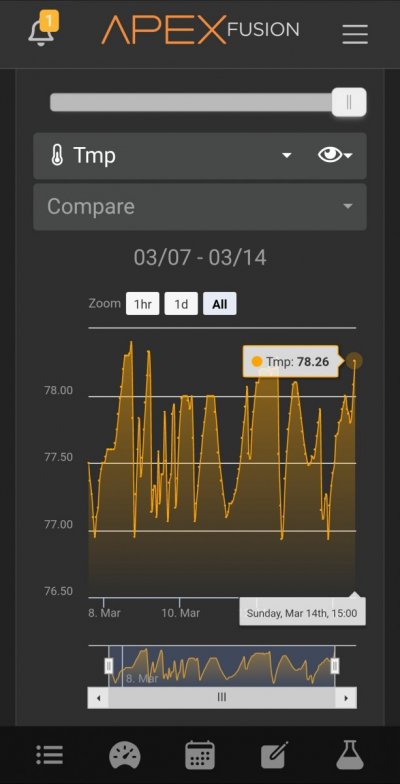I'm seeing a lot of posts talking about how important keeping water temperature stable is, often with ranges of only a few degrees being considered tolerable, but how accurate is this really?
In a real reef environment, fluctuations can often be 2-8F and sometimes as high as 12F and these reefs don't experience massive die offs or collapse as a result.
Is the temperature sensitivity a problem of our own making? What I mean is, if you have an organism that has never been acclimated to swings in temperature, it will be less equipped to cope with those changes. We have some reefers that keep their tanks in temperature controlled rooms with reduindant temperature control systems on the tanks themselves so these animals never really experience temperature changes in their environment. That said, if we program our reef systems to do a natural fluctuation of a few degrees (if your home doesn't already do this for you naturally) wouldn't that be beneficial to the reef inhabitants?
I think this would make the animals more hardy in the cases where something went wrong as well.
In a real reef environment, fluctuations can often be 2-8F and sometimes as high as 12F and these reefs don't experience massive die offs or collapse as a result.
Is the temperature sensitivity a problem of our own making? What I mean is, if you have an organism that has never been acclimated to swings in temperature, it will be less equipped to cope with those changes. We have some reefers that keep their tanks in temperature controlled rooms with reduindant temperature control systems on the tanks themselves so these animals never really experience temperature changes in their environment. That said, if we program our reef systems to do a natural fluctuation of a few degrees (if your home doesn't already do this for you naturally) wouldn't that be beneficial to the reef inhabitants?
I think this would make the animals more hardy in the cases where something went wrong as well.
















